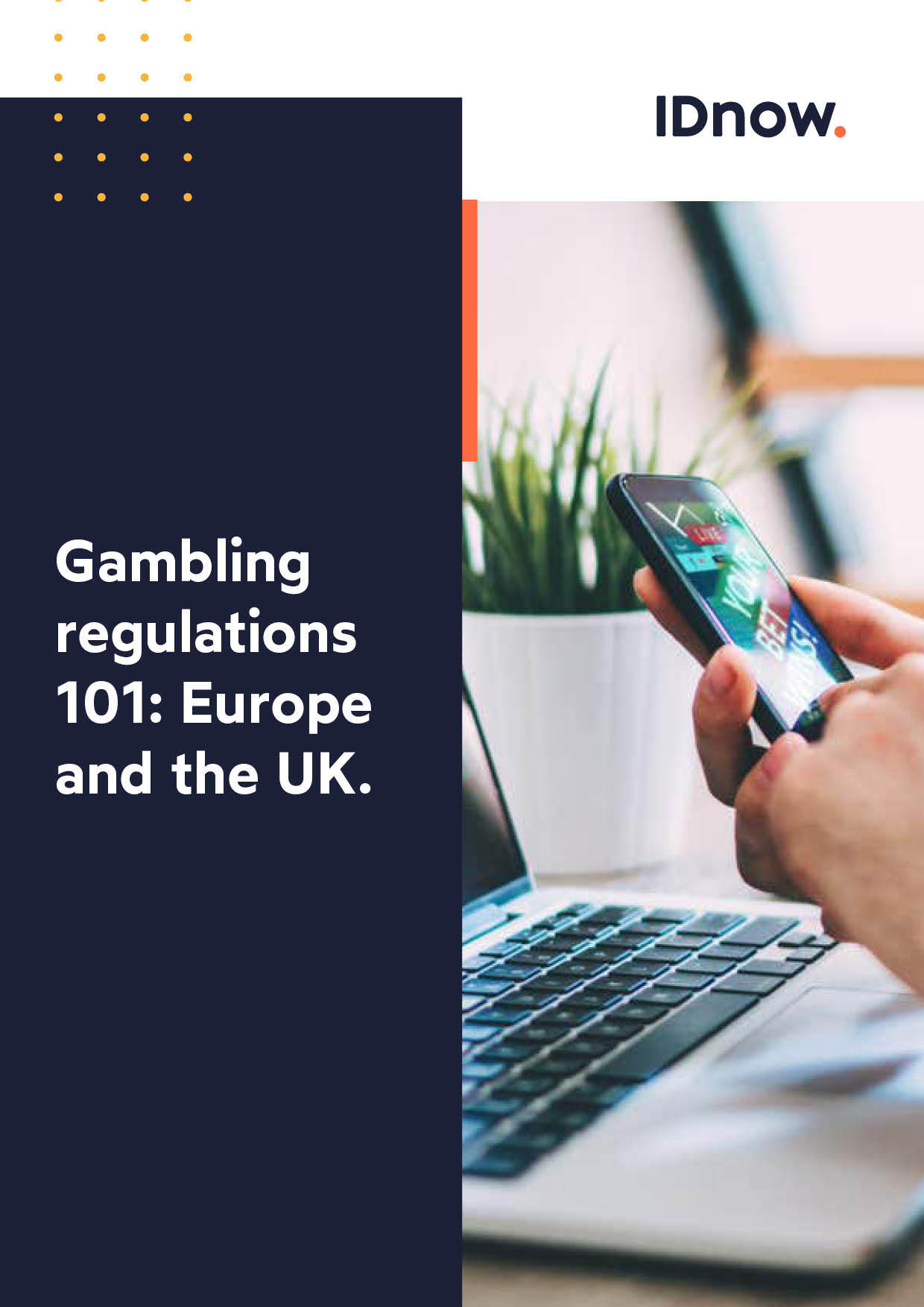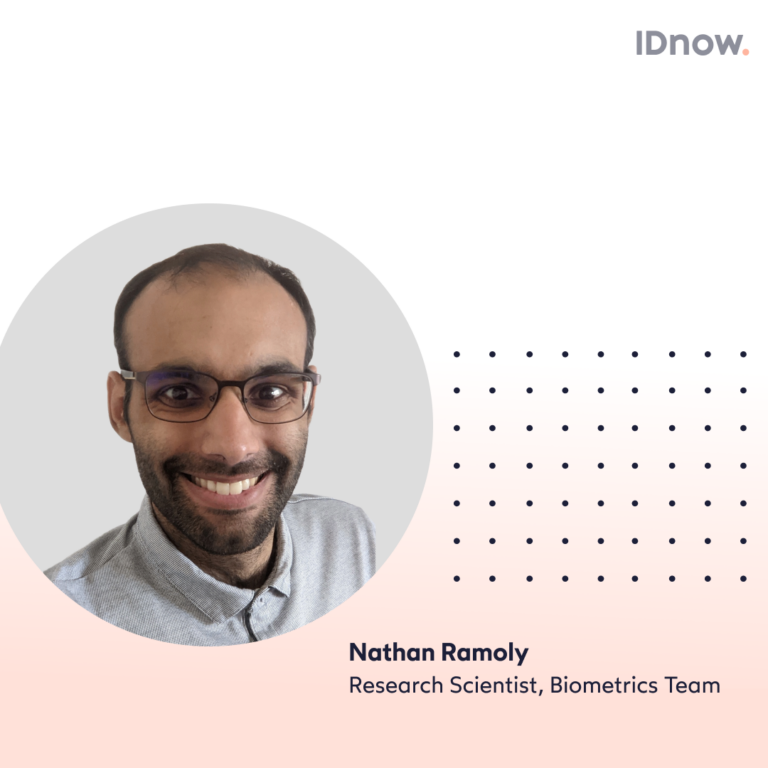We sit down with our Director of Global Gaming to discuss the upcoming changes to the UK’s gambling sector, the need for continued industry collaboration, and how to safeguard against the undeniable growth of the unlicensed market.
On the surface, there appears to be little in common between the tiny Caribbean island of Curaçao, and the densely populated island of the United Kingdom, but both will be important case studies in the evolution of the online gambling market, according to Roger Redfearn-Tyrzyk, Vice President of Global Gaming at IDnow.
While the established UK gambling market is undergoing a series of changes to its regulatory framework to reflect the digital age, Curacao, a market known for its low barrier to entry and little to no scrutiny from operators, is also reforming its licensing regime.
Important endeavors that Roger believes need to be undertaken carefully or run the risk of an exodus of licensed operators and increase in the use of the illegal market.
“This conundrum is shared across many international jurisdictions, including the Netherlands, Sweden, Ontario, and very soon, France,” explains Roger. “An open and fair environment is no guarantee of success. If we look at Norway, for example, many of the world’s most experienced and trusted operators have pulled out, leaving players with the binary choice of using a monopolized industry, or unlicensed operators.”
Although a delicate task to complete, offering a regulated gambling environment is key to the sustainable growth of a jurisdiction’s gambling market, and the pivotal third pillar in propping up a safe, secure and protected player environment. A burden of responsibility that any regulator must share with the operator and player.
“In my opinion, it is first and foremost the operator’s responsibility to provide a safe and responsible gambling experience, because this is good for the operator’s business model. However, this must be facilitated by a reliable regulatory environment that is proactive in its fight against fraud and the illegal market. So, the regulator needs to be an ally to those licensed operators. This is how the player will become better protected.”
In this interview, Roger shares his insights on the likely impact of the now mandatory financial risk checks in the UK, the real reason UK operators are subjected to such high and regular fines, why most operators are looking at KYC completely wrong, and much more.
The United Kingdom Gambling Commission (UKGC) has started its first round of consultations. Do you agree with UKGC’s four areas of priority? Do you think there are other more pressing areas that it should have started with?
It was 2018 when the UKGC started to discuss issues around affordability, but back then it was under the umbrella topic of customer interactions, and markers of harm were not the center of focus.
Financial risk and financial vulnerability is the right topic to prioritize and the most important consultation to undertake, because affordability is the comfort zone for the player and the operator’s business. A gambling platform should be running its business with a business plan that is in line with its risk appetite, and ability to invest and be exposed to financial impact. In online casinos, there can be big losses and big payouts, so it’s important to balance the comfort zone of the operator with the comfort zone of the player.
Ultimately, affordability is the customer playing and spending money in a way that is going to be sustainable in the long term for the business and the customer.
Regarding the control of marketing and advertising consultation, however, I don’t think it’s detailed enough in terms of what they are trying to achieve. For example, what ‘good’ actually looks like has not been defined. It’s still quite vague, particularly in terms of the coordination and cooperation between the Licence Conditions and Codes of Practice (LCCP) from the UKGC, Competition and Markets Authority regulations, Advertising Standards Authority, and The UK Code of Broadcast Advertising requirements. As there are many contradictions between the various rules, I think the first consultation should be around organizing and encouraging those different regulatory bodies to have one set of objectives, ambitions, and rules.
What effect do you foresee the now mandatory financial risk checks to have on the UK gambling market?
If the mandatory financial risk checks really end up being as ‘frictionless’ as the UKGC promises, then this is an opportunity to improve the relationship between the player and the operator, because the financial risk check will allow the operator to better know his customer and better tailor their offering; the pace and velocity of the game, and amounts that are going to be offered, either through marketing or the games themselves.
I’m unaware of any operator that asks players what kind of games they prefer, or whether they’re playing for the thrill or something else. Usually, they will assess this based on the choice of games made by the players.
So, used correctly, affordability markers of harm and behavioral analysis will enable the operator to increase and improve the granularity of the relationship, or even initiate that relationship between the operator and the players. The other effect is that if it is not as frictionless as is promised, for example, credit checks are not granted to licensed operators, then the immediate effect is going to be a tremendous increase in the illegal market – what is called the black markets – and operators not licensed in the UK and not abiding by the UKGC and LCCP rules are simply going to offer their services illegally to players in the UK.
Read more about IDnow’s financial risk check, the industry’s most comprehensive, holistic affordability check.
Responsible gambling has been a recurring theme for many years and features quite heavily in the UK gambling white paper. What does responsible gambling mean to you, and where should the burden of responsibility lie with regards to providing a safe and responsible gambling experience: with the regulator, the operator, or both?
If we look at the history of responsible gambling, the burden to play responsibly has always been on the player.
The original approach was that if the player engages in problem gambling, it is because he decided to not use the tools as provided by the operator. The operator only had the responsibility to inform the players of the tools that were available to limit his activity.
Then the industry started to evolve toward safer gambling, meaning the operator accepted its responsibility to create a proactively safe environment, where they conduct behavioral analysis to identify the variations and deviations of player behavior in activity, and proactively interact with players. This led the UKGC to devise its three-pillar strategy of Identify, Act, and Evaluate.
So there has been a shift from blaming players for problem gambling to accepting that not all players are necessarily aware of the amount of activity that they are engaging in, or the variations of activity they’ve displayed, and that the operator plays a very important part toward empowering player control through transparency, information sharing, interaction and action, alongside the actions of the player, of course.
So, this shift really reflects this balancing of the two comfort zones: Who is my player? What is he capable of in terms of the games we are offering? It might be a very rich person that has an extremely high-risk appetite and high affordability, but does that mean he is impervious to harm? Not necessarily. You’ll have some players that have a very low level of affordability, but occasionally they’ll want that thrill. Should we prevent them from having that thrill just because they are not rich? Those are the questions around responsible gambling, affordability and the adequation between the comfort zones. And this is where KYC becomes the compass and blueprint for an operator’s business model: to understand their players, asses the appetite of their players, where you can create fair and transparent promotions that reflect the comfort zone between the operator and player.
With most gambling and gaming now taking place online, how important will technology, and in particular KYC and onboarding platforms, be in ensuring a safe and secure gaming experience?
Operators and regulators need to move away from viewing KYC as a process, or “tick box” exercise, and instead focus on the original purpose of KYC as a founding principle of running a sustainable business.
The problem, however, is that many operators are either not currently capable or are not effectively using the data they have access to build a single image of who the player is.
If you ask any operator if they had a single view and a single understanding of who their customer is, very few have a reliable, accurate, single view across their whole estate. So having this information on an industry level is pointless until operators themselves can aggregate this information, which will enable them to switch from the mindset that KYC is a process, to KYC is a business driver.
Gambling regulations 101: Europe and the UK.

In information released since the publication of both the government and UKGC’s plans, Gambling Commission CEO, Andrew Rhodes, has said that the UKGC’s plans set out changes to ensure the UK is the safest and fairest place to gamble in the world. How feasible do you think this will be in a country that received a record-breaking £44.6 million fine in 2022; a 76% increase on 2021? Why do you think UK operators consistently receive such hefty fines?
There may be a link between the first and second question. If the UK is handing out so many fines, it could indicate that the UK is not a place where licensed operators are operating in a safe and fair way and are therefore heavily penalized for that.
Knowing many operators in the UK, however, I do not think this is the reason they receive such hefty fines, so there’s a question around what the fines say about the UK’s regulated landscape.
What I do know, and what we have seen recently, is many operators withdrawing from licensed activity in the UK, which will ultimately leave just the bigger operators offering services. Will it be fair in terms of pricing and the services that players will receive? I’m far from convinced.
The second impact of the large and consistent fines is going to be operators applying for UK licenses with no intention of operating in the UK. Their market and customer base, whether in Asia, in Latin America, or Africa will be attracted by the prestige of the UK license. So, I think the UK gambling market will end up as an oligopoly, or filled with brands that have no intention of operating in the UK.
The illegal market will take great pleasure in catering to customers seeking a frictionless gaming experience, and I think this is extremely worrying.
The UKGC should have regular discussions with the gambling industry to ensure the UK remains an attractive place for operators and investors. If most small and midsize investors in gambling companies are fleeing the UK, this is extremely worrying.
From established gambling markets like the UK to the tiny Caribbean Island of Curaçao, regulatory authorities are balancing offering competitive and flexible approaches to licensing and taxation with a safe and secure environment that discourages fraud and illegal gambling. What effect do you think Curacao’s stricter requirements have on the online gambling industry, and what lessons can be learned?
If we look at the specific case of Curaçao and the redesign of their regulations and implementation of stricter requirements, this will lead to increased blame of players in problem gambling.
As part of its news licensing structure, Curaçao will request operators to offer better complaints management, meaning they will be responsible for effectively handling complaints by offering more ways for the player to express their discontent.
So, under the guise of stricter requirements and stricter responsibility, Curaçao regulations are not actually going to empower the player much more by requiring stronger action from operators, but this is a way to grant more direct responsibility for the operators, which today they do not have, so this is certainly progress.
But the player will remain hostage to the goodwill of the operators. I think these stricter requirements have been put in place to adapt to a world where local regulators from each country are more aware of the capabilities of operators in providing a safe playing environment, and how to fulfil their role as offering better interactions with customers.
This is something we see in the Netherlands, Sweden, and Ontario because they know that players need to be protected, and they know that players are best protected when the whole environment Is cooperating, when the regulator provides a reliable framework, and when the operator is interacting in a way that balances the comfort zone of the player with the comfort zone of the business. In this way, the player is protected via regulations, in terms of requirements of fairness, of marketing, transparency, help that they can receive and obligations from the operators.
Interested in learning more about how identity verification can help take your gaming platform to the next level? Check out our content on how to launch your gambling platform in the UK, Brazil, or Peru.
‘Open for business: Navigating the landscape of Peruvian gambling regulation’
For more insights into the events that have affected financial services, crypto, and gambling in 2023, and what trends will shape 2024, check out our blog, ‘Unlocking the benefits of an identity-first 2024.’
If you’re interested in more insights from industry insiders and thought leaders, check out one of our interviews from our Fintech Spotlight Interview series below.
- Martin Lycka, SVP for American Regulatory Affairs at Entain
- Paul Stratton, financial crime trainer and apprenticeship coach
- David Birch, global advisor and investor in digital financial services
By

Jody Houton
Senior Content Manager at IDnow
Connect with Jody on LinkedIn



